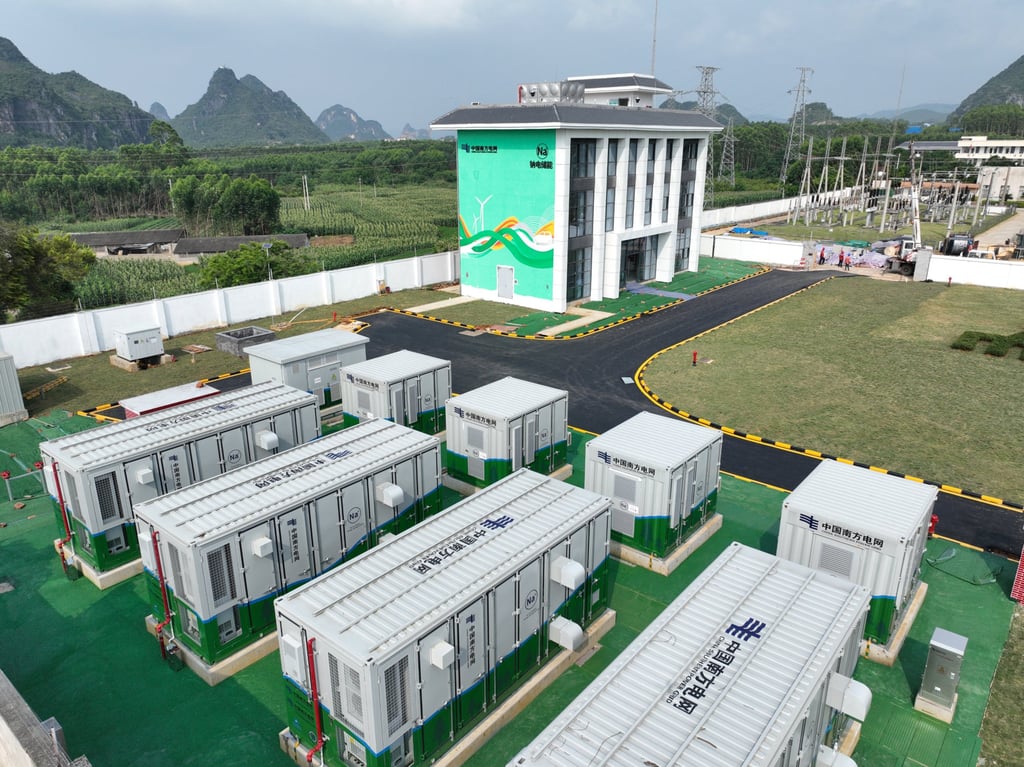China’s energy-storage industry is facing a challenging outlook this year due to the escalating US-China trade war and weaker government support, prompting one industry group to caution against price competition.
Advertisement
With exports to its biggest market in the US likely to be hit by higher tariffs, the nation’s producers are projected to trim their capital expenditure by 10 to 20 per cent this year, according to consultancy WaterRock Energy Economics. As a result, annual expansion of battery energy-storage systems (BESS) could shrink to as low as 30 gigawatts (GW) this year from 42GW in 2024, it said.
“We expect BESS prices will continue to fall in the local market this year,” said Zhang Liutong, director at WaterRock. “For exports, the BESS producers will need to cultivate non-US markets.”
BESS are devices that enable energy from renewable sources to be stored and then released when needed. They are crucial in the global transition towards clean energy, with China and the US accounting for a combined 80 per cent of installed capacity in 2024, according to Infolink Consulting.

China’s energy-storage sector is still reeling from a relentless price war after years of overproduction. Overall capacity in the new-type energy-storage sector rose by almost 10 times between 2020 and 2023, the National Energy Administration said last week. Excess supply also led to cutthroat price rivalry, causing average export prices to slump 39 per cent between 2020 and 2024, customs data showed.
Advertisement


